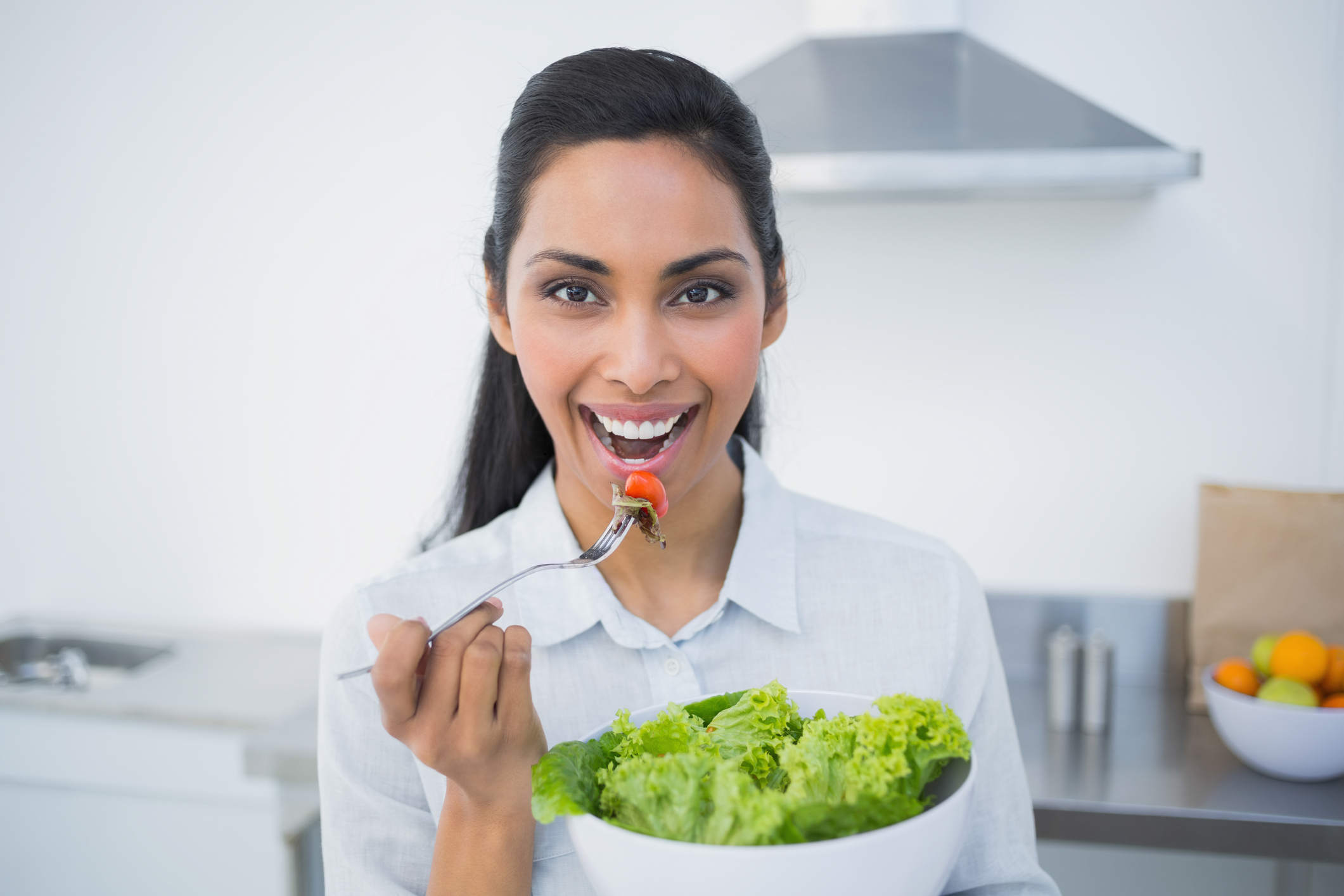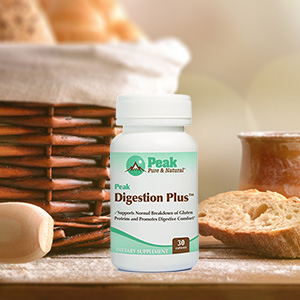Get Easy Health Digest™ in your inbox and don’t miss a thing when you subscribe today. Plus, get the free bonus report, Mother Nature’s Tips, Tricks and Remedies for Cholesterol, Blood Pressure & Blood Sugar as my way of saying welcome to the community!
For more energy and less tummy trouble — chew!

Mahatma Gandhi is said to have lived by the saying, “drink your food and eat your water.”
In fact, Indian tradition says that we should chew each bite 32 times, corresponding to the 32 teeth in our mouth — a great way to keep the act of chewing foremost in our minds as we eat.
So, you see, “chew your food properly” isn’t just something your mother preached. It appears to be advice that’s been passed down from one of the world’s oldest health and wellness traditions — and for good reason…
Research shows that people who pay attention to actually chewing their food, rather than just breaking it down into bits that barely make it down the esophagus, are healthier and suffer less disease.
And that’s because the digestion process begins in your mouth, not your stomach. If this important first step doesn’t go as it should, it’s the first kink that can lead to a world of problems…
Chewing is where digestion begins
Ayurveda, the traditional Hindu system of medicine, has a saying that goes, “if you give your guts or digestive system the work meant to be done by the teeth, you will invite diseases.”
When you first begin chewing your food, you’re not only breaking it down into smaller pieces you can swallow, you’re helping to release the nutrients inside — with the help of enzymes in your saliva that break down starches and fats.
Then, from your mouth, food particles travel through your esophagus and to your stomach. The smaller the molecules of food, the better the digestive enzymes can further break them down and extract nutrition before the rest becomes waste and exits your body.
In other words, even if your diet is highly nutritious, you may be wasting a big percentage of those vitamins and minerals unless you chew your food into small enough pieces for your body to benefit.
Chew for more energy after meals
Are you one of those folks who always feels drowsy after a big dinner or who has that tired slump right after lunch?
Ever wonder why you feel tired when you’ve just fed your body with energy-producing calories, nutrients and vitamins?
The answer is simple. And, you guessed it, it has to do with chewing.
After a meal, the blood from your brain and extremities (hands and feet) must rush to the stomach, which is overloaded. That’s why you feel groggy, cold and tired.

Peak Digestion Plus™
Works quickly to protect you from the unwanted effects of gluten ingestion plus, soothes stomach upset, eliminates unwanted impacts from food sensitivity, and boosts the health of your gut.
Don’t believe me? Try chewing each bite at least 32 times during a meal when you’d normally feel that after-meal energy dip.
You’ve half-digested your food while it’s still in your mouth, so less blood is needed to help fuel muscles and processes in the stomach. See how much lighter and energetic you feel at the end of the meal.
Other reasons to chew well
Weight loss. There are two major hormones that control your appetite.
After you’ve eaten, your body suppresses the hunger hormone ghrelin, and releases leptin, the hormone that tells your body that you’ve eaten a good meal and are full.
This process takes about 20 minutes, so slowing down your meal by chewing thoroughly gives your brain the time it needs to receive your gut’s “hunger signals” and release the proper hormones.
When you gobble your food, your stomach never gets a chance to realize it’s eaten, so it urges you to eat more. Practicing mindful eating, which includes thoroughly chewing your food, has helped people reduce portion sizes by 15 percent in studies.
According to Michael Mantzios, a mindfulness researcher and lecturer in health psychology at Birmingham City University in the U.K. “The only thing you have to focus on is the food. Mindfulness brings you back to the present moment, back to the present meal.”
Prevent digestive troubles. When you don’t chew your food enough, the rest of your digestive system gets “confused.” Your body may not produce enough of the enzymes needed to fully break down your food. This causes digestive problems including bloating, diarrhea, heartburn, gas, acid reflux and nausea.
How to get in the habit of chewing more
The number 32 is just one way to get yourself to chew your food more. Here are some other things that work.
- Don’t eat while driving, watching TV, texting or talking on the phone.
- Choose high fiber foods like fruits and vegetables that take more time to chew
- Set a timer for 20 or 30 minutes for each meal and don’t get up from the table until the timer goes off.
- Put down your spoon, fork or knife (or piece of food, if eating with your hands) every few minutes. Don’t pick it up again until you’ve swallowed what’s in your mouth.
Sources:
- 5 health benefits of chewing 32 times — sepalika.com
- Chewing your food: is 32 really the magic number? — Healthline.com
- Can you lose weight on the mindfulness diet? — Time Magazine













